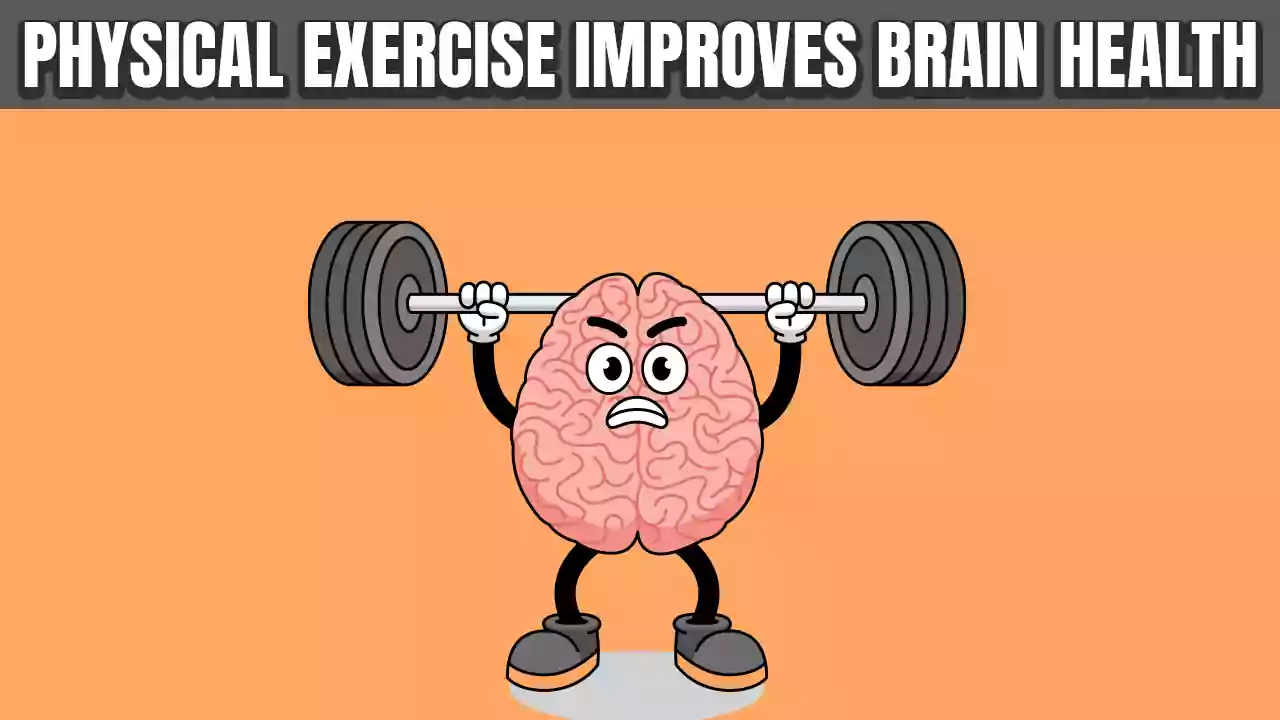Physical activities are long known to be associated with physical fitness only. However, recent studies have been revealing a strong beneficial connection between exercise and brain health. It might sound strange and you might wonder how physical exercise can improve brain health? We’ve got answers to your queries. Let’s take a walk in the maze of the brain to see how it works better after an exercise.

How does physical activity benefit mental health?
Physical activity, performed for any fitness reason, does affect the brain also in a positive way. The increased heart rate due to exercise results in pumping more oxygen to the brain which improves brain activity. Its role has also been studied in aiding the release of hormones that are involved in the growth of brain cells. Not only the growth of brain cells, but the growth of neural connections also increase due to regular physical activity. All these elements then affect the overall health of the brain and responses related to it. Let’s see how come physical activity can be responsible for better mental health.
1. It promotes blood flow toward the brain
A typical physical activity does increase the heart rate and eventually increases the blood flow towards the brain. This increased blood flow makes sure to supply enough oxygen to the brain to improve brain activity by improving communication between neurons.
2. It fights depression
Studies have found exercise as a healthy and better alternative to the typical antidepressants to fight depression. High-intensity workouts trigger the release of endorphins, which are known to uplift the mood, eventually reducing the symptoms of depression. Studies have also revealed that even low-intensity workouts can fight against depression. Such workouts, when performed, release neurotrophic proteins that increase the growth of nerve cells and help in making new connections. These connections stabilize and improve brain function which eventually leads to alleviation of symptoms of depression. This growth happens in the hippocampus of the brain, which is known as the region that regulates mood.
3. It makes the anxiety go away
Just like depression, anxiety also can be treated with physical activities. The release of endorphins relieves the tension and improves mental energy. Exercise helps in diverting focus from the disturbing thoughts, thus the level of anxiety decreases, or it might completely go away.
4. It reduces the symptoms of ADHD
Attention deficit hyperactivity disorder (ADHD) is the neurodevelopmental disorder that is the most studied and most commonly found in children. Exercise is the quickest and easiest alternative to the ADHD medications like Adderall or Ritalin. The continuous movement in the body releases dopamine, serotonin, and norepinephrine, which improves the focus and attention on the details and reduces the symptoms of ADHD.
5. It treats trauma and PTSD symptoms
PTSD (Post Traumatic Stress Disorder) due to traumas can be hard to treat. While there are many therapies to work this out, exercise can be quite beneficial in its treatment. The exercise helps untangle worrisome thoughts and lowers the feeling of fear.
6. It boosts your memory and thinking abilities
While almonds can surely sharpen your memory, exercise can boost it as well. Exercise results in the release of endorphins and they not only make your mood better but also help in improving your concentration. Exercise also triggers the growth of neurons, which boosts memory.
7. It reduces the stress impact
Though exercise cannot make the stress go away but can surely help in reducing its impact. When you exercise, it decreases the number of stress receptors that are found in the hippocampus of the brain. This reduction in stress receptors helps in minimizing the stress impact and provides you with a euphoric sensation.
8. It reduces the risk of dementia
Not only does exercise boost your memory but also protects your memory. People suffering from dementia or other mental issues that make them suffer from memory loss have seen an improvement in their memory after exercising. Studies revealed that exercise results in the formation of new synapses in the brain which helps in better memory and learning. This can highly reduce the risk of Alzheimer’s.
9. It makes your mind strong
During an unfortunate or stressful event, people who exercise show more resilience and healthy coping mechanisms. Despite finding a resort to drugs or other negative things, they make more wise decisions and keep their health a priority.
How much physical activity contributes to mental well-being?
There isn’t any specific amount of physical activity required for mental well-being. Even if you cannot perform intense or moderate workouts, staying active for 10 to 15 minutes daily will reap similar benefits. But if you can, then a moderate physical activity of 30 minutes a day can be quite beneficial for mental health.
Conclusion
Whether it’s your body or your mind, physical activity makes sure to keep them healthy. So, if you are feeling depressed or suffering from any other mental health issue, you can always rely on physical activity to make you feel better. Though, it’s not an ultimate solution but does play a major role in mental well-being.

I look up to fitness as a lifestyle and love to pen down about it. I have 2 years of experience in content writing and I am here to share my research and knowledge on health and fitness.













